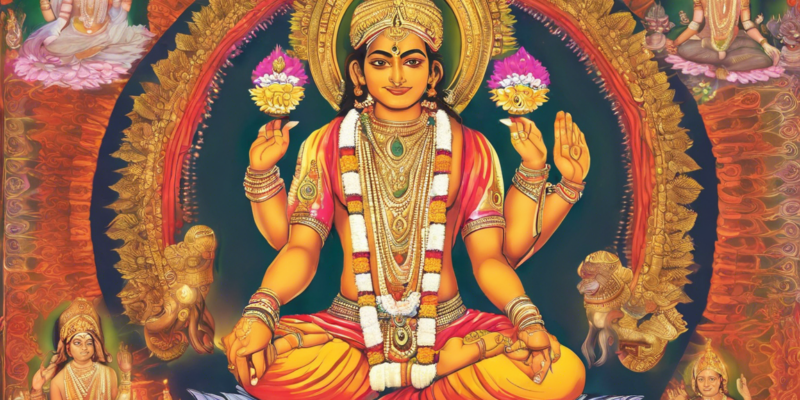Masturbation is a common and natural act that most people engage in at some point in their lives. However, for some individuals, excessive masturbation can lead to physical, mental, and spiritual consequences. In the Hindu tradition, the practice of Brahmacharya (celibacy) is highly valued, and excessive indulgence in sexual activities, including masturbation, is often discouraged. In this article, we will explore the reasons why some Hindus may wish to end their masturbation habits, as well as strategies and techniques to help them achieve this goal. We will also address the physical, mental, and spiritual benefits that can result from abstaining from masturbation.
Understanding Masturbation in the Hindu Context
In Hinduism, the concept of Brahmacharya is an essential aspect of spiritual practice. Brahmacharya is often translated as celibacy or chastity and is one of the key virtues that a spiritual seeker is encouraged to cultivate. It is believed that conserving one’s sexual energy can help individuals redirect that energy towards spiritual growth and self-realization.
Masturbation, although not explicitly mentioned in traditional Hindu texts, is generally considered to be a form of self-indulgence that can deplete one’s vital energy. This can hinder one’s spiritual progress and lead to feelings of guilt, shame, and disconnection from one’s higher self.
Reasons to End Masturbation Habits
There are several reasons why some Hindus may choose to end their masturbation habits:
-
Spiritual Growth: Many individuals believe that by abstaining from masturbation, they can redirect their sexual energy towards spiritual practices such as meditation, yoga, and prayer.
-
Cultural and Religious Beliefs: For some Hindus, the practice of Brahmacharya is an essential part of their religious and cultural upbringing. Ending masturbation may be a way to adhere to these values.
-
Physical and Mental Well-being: Excessive masturbation can lead to physical issues such as fatigue, back pain, and sexual dysfunction. It can also contribute to feelings of guilt, shame, and low self-esteem.
Strategies to End Masturbation Habits
If you are a Hindu seeking to end your masturbation habits, here are some strategies that may help you:
1. Cultivate Self-Awareness
Developing self-awareness is the first step towards changing any habit. Notice when, where, and why you are triggered to masturbate. Understanding your patterns can help you break the cycle.
2. Engage in Healthy Activities
Replace the habit of masturbation with healthy and fulfilling activities such as exercise, hobbies, spending time in nature, or socializing with friends and family.
3. Practice Mindfulness and Meditation
Mindfulness techniques and meditation can help you stay present in the moment and reduce the urge to masturbate.
4. Seek Support
Consider talking to a trusted friend, family member, or counselor about your struggles. Support from others can provide encouragement and accountability.
5. Explore Spiritual Practices
Engage in spiritual practices that resonate with you, such as chanting mantras, reading sacred texts, or participating in rituals. These practices can help you connect with your higher self and transmute your sexual energy.
Benefits of Ending Masturbation Habits
There are numerous benefits to ending masturbation habits, including:
-
Increased Energy Levels: Conserving sexual energy can lead to higher levels of vitality and overall well-being.
-
Improved Concentration and Focus: Redirecting your sexual energy towards productive activities can enhance your mental clarity and focus.
-
Enhanced Spiritual Connection: Many individuals report feeling a deeper connection to their spiritual selves and a greater sense of inner peace after abstaining from masturbation.
-
Improved Self-esteem: Overcoming a challenging habit can boost your self-confidence and self-worth.
Frequently Asked Questions (FAQs)
1. Is masturbation considered a sin in Hinduism?
Masturbation is not explicitly mentioned as a sin in Hindu scriptures. However, excessive indulgence in sexual activities, including masturbation, is generally discouraged as it can deplete one’s vital energy.
2. Can masturbation affect my spiritual progress?
Some believe that excessive masturbation can hinder one’s spiritual progress by depleting important energy reserves. By practicing self-control and abstaining from masturbation, individuals may be able to redirect their energy towards spiritual growth.
3. How can I deal with the guilt and shame associated with masturbation?
Guilt and shame are common emotions associated with masturbation, especially for those who come from conservative cultural backgrounds. Seeking therapy, engaging in self-reflection, and practicing self-compassion can help individuals work through these emotions.
4. What are some healthy ways to manage sexual urges?
Engaging in physical exercise, practicing mindfulness, redirecting your focus to creative or productive activities, and seeking support from loved ones are all healthy ways to manage sexual urges.
5. How long does it take to break a masturbation habit?
Breaking any habit takes time and effort. It varies from person to person, but with dedication, self-awareness, and support, individuals can successfully overcome their masturbation habits and lead a healthier, more spiritually fulfilling life.
In conclusion, ending masturbation habits can be a challenging but rewarding journey for Hindus seeking to align with their spiritual values and improve their overall well-being. By understanding the reasons behind their desire to change, implementing effective strategies, and seeking support when needed, individuals can successfully overcome this habit and experience the physical, mental, and spiritual benefits that come with it.



Comments